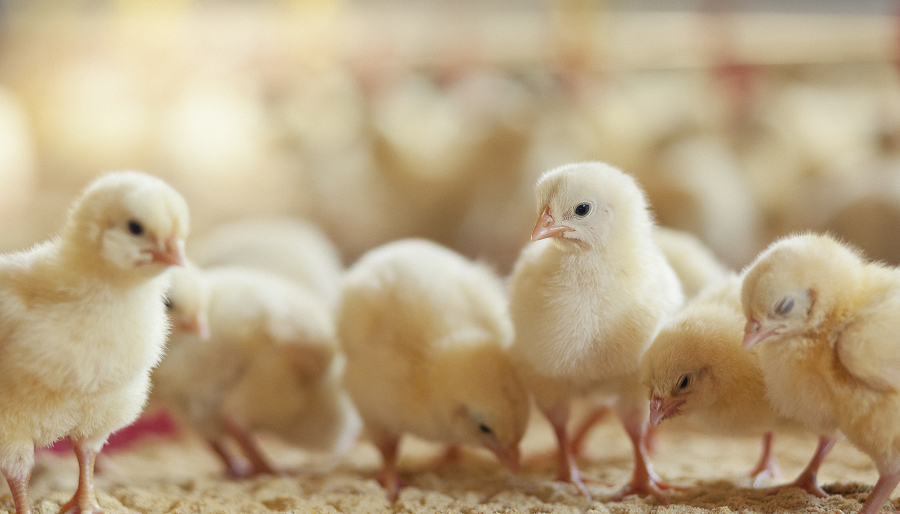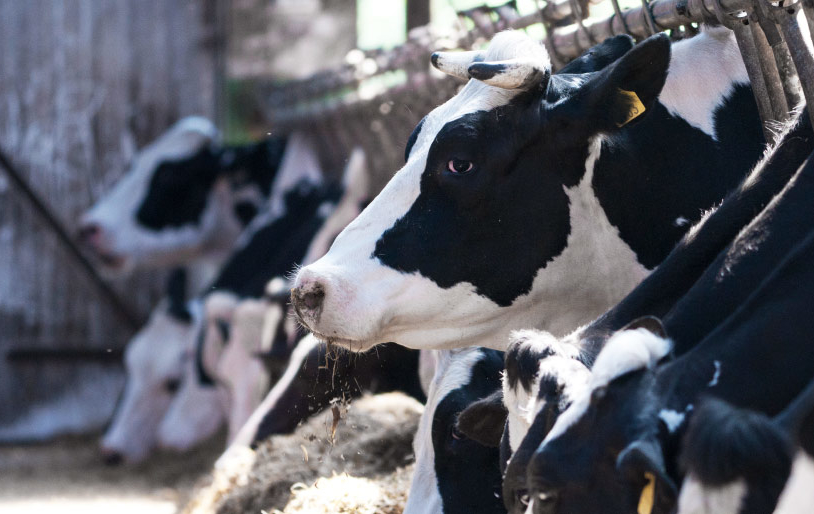Good health starts in the gut
Digestive health is a main concern in the poultry industry as it has a high impact on production and mortality rates caused by gut diseases. Traditionally, sub-therapeutic doses of antibiotics have been used as a strategy to improve gut flora, prevent diseases, and enhance growth performance. However, such approach has been discouraged as it poses significant risks to both animal and public health. Indeed, since 2006, the European Union banned the use of antibiotics as growth promoters in livestock production.
The poultry industry has been looking for safer alternatives to antibiotics that could contribute to preserving gut health of broiler chickens, while simultaneously acting as growth promoters. Feed supplementation with probiotics has been proven to be one of the most promising approaches to replace antibiotics due to the notable health and performance benefits.
Probiotics, the natural alternative
Probiotics are living microorganisms that improve the health of the host animal species when administered in adequate doses. Probiotics particularly contribute to a healthy gastrointestinal tract by populating it with a stable and diverse community of beneficial bacteria. By enhancing the numbers of these symbiotic bacteria and by promoting a dynamic equilibrium of the microbiota, probiotics prevent the outbreak of harmful bacteria, mainly through a mechanism of competitive exclusion – a process by which potential pathogens are excluded through competition for nutrients. Additionally, beneficial bacteria produce antimicrobial metabolites and adjust the immune response of the animal host, thereby creating a gastrointestinal environment hostile to harmful bacterial species.
Various species of microorganisms have been used in probiotic blends. Nonetheless, Bacillus subtilis-based probiotics are one of the most advantageous for gut equilibrium. Not only does B. subtilis promote a healthy intestinal function, foster a stable microbiota, and improve the immune response. It also promotes the growth of lactic acid bacteria that help to reduce the risk of diseases and infections, and produce metabolic enzymes that improve nutrient digestion.
Microbiota – a delicate balance for gut health
The digestive tracts of broilers are sterile at hatching, but they are rapidly colonized by microorganisms from the surrounding environment that develop into a complex community of microorganisms – the microbiota. Due to the fact that younger birds have fewer bacterial species in the intestinal tract than adults, their gut is more susceptible to disorders promoted by harmful bacteria that can quickly destabilize the gastrointestinal tract. Interestingly, the incidence of harmful bacteria in poultry has increased since antibiotics were banned as growth promoters thus showing the importance of finding an alternative solution to stabilizing the gut microbiota in broiler chickens.
Since the microbial colonization of the digestive system occurs early in the life of broiler chickens, a prompt establishment of a healthy microbiota is crucial for their health and performance. It has been scientifically demonstrated that optimal health and growth of broilers can be achieved by probiotic supplementation in early life stages. For instance, a study performed by Chr. Hansen has shown that chicks supplemented with the B. subtilis DSM17299 probiotic GalliPro® have a more diverse and complex microbiota in the ileum – the final section of the small intestine – which contributes to a more robust bird, less vulnerable to diseases and infections. Another important consequence of such healthy microbiota is a significant improvement in growth performance with less feed consumption which can reduce overall costs of poultry production.
Besides the acknowledged positive effect of probiotics on balancing the gut’s microbiota, a large amount of work has been conducted to evaluate the effect of probiotics on infections particularly affecting the poultry industry. Several studies conducted by Chr. Hansen showed that GalliPro® supplementation reduces the load of harmful bacteria such as Salmonella in the gastrointestinal tract of chickens (Figure 1). Moreover, it has been shown that GalliPro® supplementation can help control the proliferation of Clostridium perfringens in the ileum thereby reducing the risk of necrotic enteritis while simultaneously promoting the growth of lactic acid bacteria that stimulate the immune response of the host.




